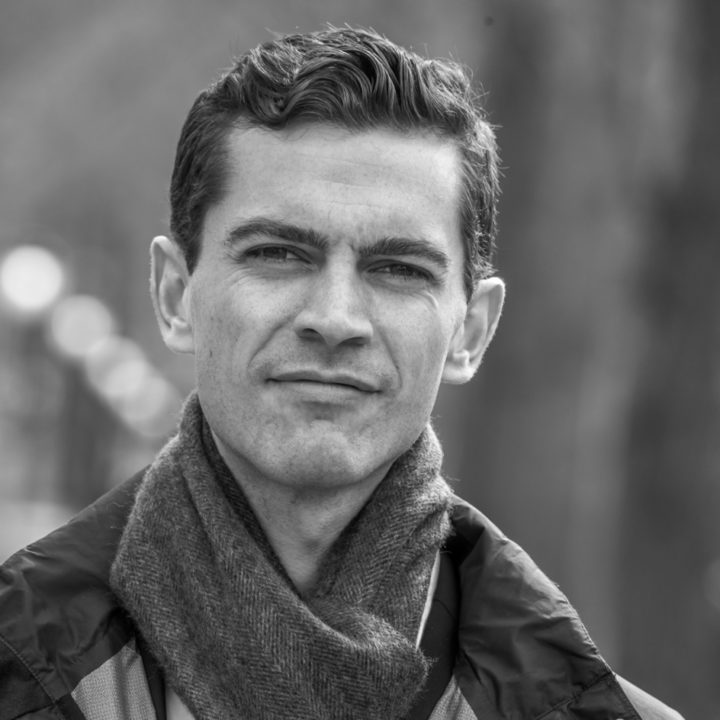Many Americans are toiling in precarious, meaningless, degrading labor, and wealth distribution is vastly unequal and unfair. These two problems could be addressed by one simple policy, and it’s not a jobs guarantee.
Several prominent Democrats have unveiled policies guaranteeing federal jobs to unemployed Americans, sparking a debate on the merits of government intervention in the labor market. Figures on the right and center-left have pointed out these policies have some problems. But what fewer commentators have noted is that these policies miss the point. The blight afflicting the nation is not unemployment, which is only about 4%. The problem is the fundamental relationship between work and personal autonomy, between citizen and economy. Instead of guaranteed jobs, a progressive, just solution to our economic woes would decouple survival from employment itself, while making it easier for people to sustain their own self-employment. There’s one simple way to do this: unconditional incomes married to guaranteed capital investments.
A survey by Payscale found that 46% of Americans consider themselves underemployed. A recent study found 43% of Americans unable to afford basic expenses, like rent and food. Only a third of Americans work full-time. Arne Kalleberg, a leading scholar in precarious employment, has identified major trends since the 1970s that have led to precarious work, among them an increase in perceived job insecurity, a greater share of nonstandard, contingent employment—e.g., short-term contracts in the “gig economy”—and risk shifting from employers to employees.
Exacerbating this employment anxiety is wealth inequality on a scale not seen since the Great Depression. The wealthiest 1% are hoarding 40% of the nation’s wealth. Wages have stagnated for the middle- and working-classes, with virtually all wage growth going to the top 1% of earners. Most Americans are in debt, hitting record highs. Forty-three percent of American children today live in l0w-income families. “One-third of American households have struggled to afford either food, shelter or medical care,” rings one recent headline on MarketWatch. The sense of unfairness born of vast inequality has historically resulted in a violent reordering of society. There’s no reason to believe it won’t again.
Precarious underemployment and inequality profoundly impacts psychological well-being, helping drive epidemics of anxiety, which “scar[s] employees’ mental health,” and increases drug abuse and rates of depression. Further, entrepreneurship—the ability to self-employ when alternatives are scarce or, you know, you want to—is way down, dropping by nearly half since the 1970s. The culprits, according to reporting in Inc., are primarily generational economic insecurity (see above), monopolies crowding out competitors in consolidated markets, and investors reluctant to take risks. Most startup founders today come from backgrounds of wealth and privilege. Beyond precarity and inequality, employment today often entails rampant wage theft, exploitation, and overwork in which, with little recourse for self-employment, many Americans are trapped.
But statistics are academic. Most Americans understand at a visceral level what overwork, unfair pay, insecurity, inequality, and indebtedness feel like. Most understand the pain of looking at a bank account riddled with debt and the resentment of watching the world’s wealthiest citizens attain degrees of freedom and security so thorough they can chuck $1 billion of their “winnings” into space every year. In this condition, our well-being, fulfillment, and sense of freedom inevitably suffer. The current economy, by its nature, is incompatible with the original promise of the nation’s founding: a guarantee of life, liberty, and the pursuit of happiness.
Despite the legitimate concerns surrounding a guaranteed income, there is at least one self-evident ethical reason a guaranteed, non-labor income of no less than equivalent to a living wage (today about $15 per hour) should pay every American: most today suffer a state of forced labor. Since most of us must take whatever jobs are available to sustain our physical survival and social acceptance, labor is quite literally imposed by force. Elizabeth Anderson, author of Private Government: How Employers Rule Our Lives (and Why We Don’t Talk about It), has made a strong case that bosses enjoy the unaccountable power of dictators, largely because they hold power over their employees’ subsistence. This condition is fundamentally incompatible with a free society.
The first basic condition of a nation that can be called “free” must be that people control their own time; that is, participation in the workforce must be optional. Anything else lies somewhere on the spectrum of enslavement. An adequate UBI would at least grant subsistence unattached to wage labor. A UBI—preferably implemented through policy as durable as a constitutional amendment—would free every American from the servitude of toiling for sustenance at the whim of an employer.
Another, more novel mechanism for decoupling survival from a wage is something we might call a universally guaranteed investment. A UGI would enable individuals to launch ventures without relying on tenuous, exploitive private investment schemes. Essentially, a UGI would guarantee public seed capital to anyone who could apply with a viable project plan. This is what owning the means of production can look like in a concrete way.
Private funding is extremely difficult to come by, especially for those lacking elite networks, financial security, and free time. But with investments coming from a guaranteed—low- or non-interest—source facilitated by democratically elected bodies, many more worthwhile ventures could be launched. Venture capital firms are not the most efficient, benevolent, or rational arbiters of project funding. And, like wealth, they are extremely concentrated with almost 77% of VC investments occurring in just ten metropolitan areas. It’s rarely the market that decides whether ventures launch; it’s usually just a small group of investors. As David Graeber, author of Debt: The First 5,000 Years, put it, “If 1% of the population controls most of the disposable wealth, what we call ‘the market’ reflects what they think is useful or important, not anybody else.”
A UGI could achieve financial self-sufficiency if the fund retains adequate equity stakes in the ventures it capitalizes. Ventures with higher risk or lower returns would offer higher equity shares; lower risk or higher return ventures would keep more of their equity. Some profits would be inherently socialized to some extent. The economic activity generated by such a program could even yield revenue beyond whatever the government originally invests—given that government support of tech R&D has historically tended to yield high private returns—helping to fund other services like a living UBI and universal healthcare.
Alexander Hamilton wrote in Federalist Paper No. 79, “A power over a man’s subsistence amounts to a power over his will.” Instead of the universal jobs guarantee Democrats are proposing, thus expanding the dominion of such workplace autocracy, the nation should be working toward a jobless economy in which everyone who wishes has the capacity to self-employ, work for someone only if they choose to, or live with dignity outside the existing morass of available jobs.
These twin programs, a UGI and UBI, would allow every person in the country to be free from exploitive, oppressive jobs, attain greater power to negotiate with existing employers, launch their own ventures, and cultivate their highest talents. Whereas a jobs program is inherently complex to administer, this program would be relatively simple and straightforward. Whereas other social services are often stopgaps—and cast as paternalistic—unconditional incomes and investments give basic control of capital directly to everybody.
These programs could open the floodgates of American ingenuity and prevent a few individuals holding power over another’s subsistence. If someone lost her job, she would still control her own capital and have access to additional capital streams unattached to usurious interest rates. This would provide a more rational, efficient, and compassionate distribution of labor resources than our broken economy provides.
These programs will certainly require taxing wealthy people and monopolistic companies at much, much higher rates, thereby addressing inequality. The primary objection to taxing the rich and corporations is that they are “job creators” and that by taxing them at higher rates, they will eliminate jobs. But with a UBI/UGI, who needs their jobs? Their jobs are generally terrible anyway. Americans, instead, would be empowered to create their own jobs and create more desirable jobs for others. The economic dynamism generated from innumerable new consumers, ventures, and products would more than replace the stagnant, monopolized market we now reside within.
Most importantly: what’s preferable? Being your own boss, or flailing around an Amazon warehouse floor clutching bottles of your own urine? Which life amplifies a person’s dignity? Which affords more freedom? If we want universal access to liberty, then instead of universal employment, we need a jobless economy. Not a workless economy, but one that does not force people into the servitude of whatever jobs the wealthy decide should exist, ruled over by unaccountable bosses, toiling away in meaningless, degrading labor. Instead, we need an economy that finally cements the most fundamental freedom: to decide how we live our lives.






